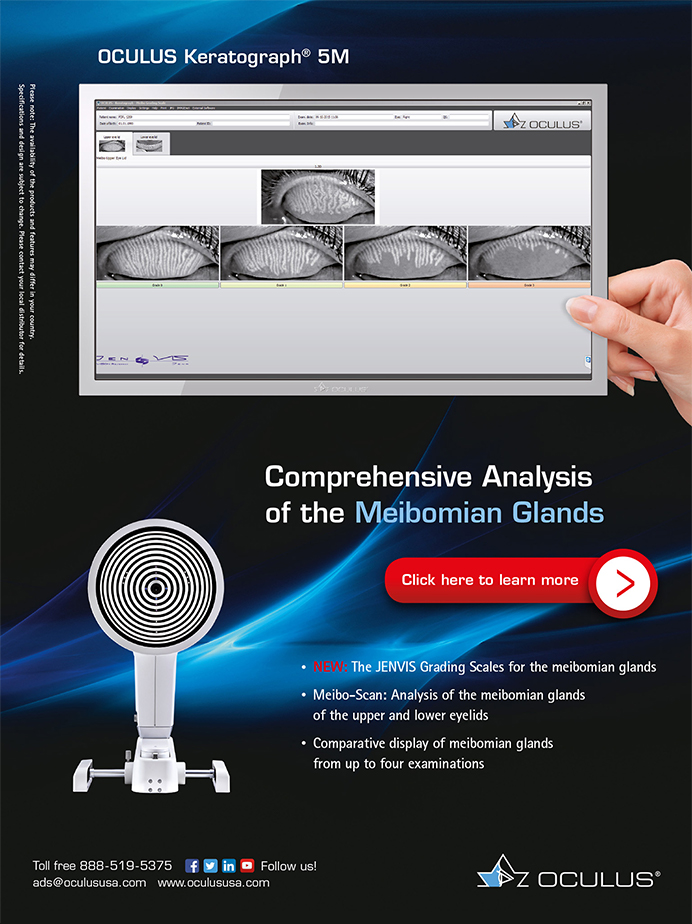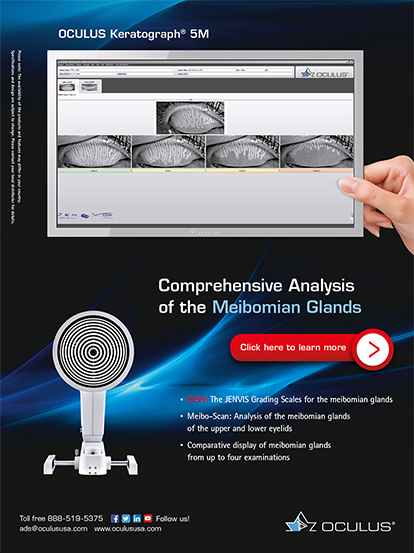The practice I belong to, the Cleveland Eye Clinic, was among the earliest ophthalmic practices in the country to recognize the value of working with optometrists. Optometry and ophthalmology have mutually benefited from the synergistic dynamic of modern eye care, and, as both disciplines have deepened their respective specializations during the past few decades, our patients have benefited and the practice has flourished. Today, the Cleveland Eye Clinic has five ophthalmologists and 10 optometrists on staff, and we have relationships with hundreds of referring optometrists.
WHY MDs ADD ODs
There are a number of attractive qualities a clinician might possess that would make them attractive to a surgical practice seeking to bring a new practitioner on board.
When a group of surgeons adds another ophthalmologist to a practice, the goal is shore up the practice’s ability to address patients’ evolving needs. One year the practice might be in the market for someone whose experience includes expertise in refractive surgery; another year, a surgeon’s skill in microinvasive glaucoma surgery might make him or her an ideal choice.
The same holds true when a surgical group considers bringing in an optometrist. We look for a candidate who has a particular specialty, such as ocular surface disease management, perioperative surgical patient comanagement, refractive surgery management, or specialty contact lens experience.
Having a team of eye care practitioners whose areas of interest cover the gamut of patient needs adds value to a practice and helps it grow. Whether you are fresh out of an optometry residency or are seeking to take the next step of your career, focusing on a specialty or enhancing the one you already have is a sure-fire way to make yourself more appealing to ophthalmic practices.
AN EXAMPLE
If an optometrist has an exemplary track record in pre- and postoperative surgical care of cataract patients, then my practice may hire that practitioner to help maximize the efficiencies of our practice’s cataract service. These efficiencies would include maximizing surgeons’ time in the OR. Such a hire would likely engender confidence that the practice’s patients are in the hands of an eye care provider who will educate patients on all possible IOL upgrade opportunities.
Without a qualified optometrist in its cataract service, a practice’s busy ophthalmologists may feel pressured, as they retain both clinical and surgical obligations. As surgeons become busier, they may feel that they can provide better service by having a knowledgeable optometrist to help explain in detail the IOL upgrade choices available to patients. With lengthier or detailed perioperative care, a team of providers may create a more knowledgeable patient base that will have confidence in choosing appropriate vision-correcting surgery, thereby allowing the practice to provide better services and higher patient satisfaction, which in turn can translate into increased profitability. With an optometrist on the team who has an interest in perioperative cataract patient care, the practice can provide enhanced service that allows patients to understand all possible options.
KNOW YOUR PASSION
The key to attracting the interest of a hiring ophthalmology practice is to identify an area of eye care that excites your passions and brings you joy, and then to invest your time and attention to that particular issue, condition, or treatment paradigm. When you have a passion for something, it makes itself known by what you say and do. When you present yourself to potential employers, that passion transcends the specifics on your resume, just as perfunctory responses telegraph a lack of inspiration.
Every eye care practitioner in our practice—from the most recently hired optometrist to the founding ophthalmologists—is a reflection of our brand and of the care that our patients can expect to receive. Specialization and passion, combined with a commitment to educating our patients about every option for improved sight and visual comfort, is what our practice seeks in the optometrists we add to our staff.
Our practice is not unique in its respect for passion. Demonstrating how your passions may benefit a practice’s culture will only pay dividends in the long run.







